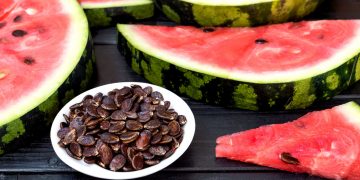Oat milk is the most popular plant-based milk. However, there has been a lot of innovation in recent years. Oats milk’s mild, buttery taste and similarity to dairy could make it a great choice for anyone looking to swap cow’s milk for a more sustainable option. Oat milk isn’t a part of hot drinks like almond and coconut milk.
However, many questions continue. Is oat milk healthy? What are the benefits of oat milk? Are they right for the environment or just marketing? How does it compare to the white stuff? Jenna Hope, a nutritionist, helped us to remove the veil on oat milk’s nutritional attributes and determine if the plant-based beverage deserves a spot in your fridge.
Oat milk has been the topic of numerous articles due to its popularity. This is partly due to Oatly, which Oatly is. Bustle points out that Oatly started selling its products in cafes using a unique “barista mix”, which earned it a reputation among people who want to try something different and those who are looking for a new way to get dairy.
Oat milk is a popular dairy option due to its lower environmental impact than other products like nut milks. Bustle points out that Oat milk requires less water to produce than almonds. So how does this milk get made? Healthline explains that the milk is made by “soaking and mixing oatmeal or steel-cut with water.” The water was then drained and made into cheesecloth.
Other healthy considerations
The majority of oat milk available on the market today contains vegetable oil (also known as rapeseed or rapeseed oils). Oil can be low-quality omega-6 oils that are also inflammatory. We would like to have omega-6 fats but there is an adequate ratio between omega-3s and omega-6s. Unfortunately, most Americans consume far too many omega-6 oils to maintain that balance.
Remember to keep in mind the sugar content. Oatly’s original contains seven grams of sugar that is regularly occurring from the oats. Oatly’s opposite and brands such as Elmhurst or Pacific Foods add sugar. Pacific Foods packs in an incredible 19 grams of sugar.
Which is better, almond milk or oat milk?
Two parts determine how good oat milk is for lactose-free people.
Do you prefer an unsweetened option? Look for almond and oat milk that state “unsweetened” on their packages. Also, make sure to check the nutrition facts label to ensure there is no combined sugar per cup. Attention: Barista Blend is another code for added sweetness. It’s intended to have a smoother texture when making milk foam for lattes.
How much are you drinking of it? Oat milk can be enjoyed in tea, coffee, cereals, and homemade smoothies if you enjoy the flavor. Oat milk can use to lose weight. However, it has slightly more calories than almond milk. The main advantages of Vidalista 20 mg, and Nizagara 100 tablets are speed and efficiency.
Is oat milk healthy?
Because of the way it is processed, oat milk does not contain the same nutrients as a bowl full of oats. It does however have some health benefits. Oat milk brands with added micronutrients and no sugar attached will be a great alternative to dairy milk.
It is often fortified with calcium or cholecalciferol which are vital for bone health. Calcium is what is at the base of your bones. However, your body can’t absorb it well without taking D. These nutrients are essential for bone health.
What are some of the benefits of oat milk,
Oat milk offers many health benefits. These health benefits are only applicable to store-bought Oat Milk that contains added vitamins. I recommend that you make your oatmilk reception so you can reduce your intake of processed ingredients and take control over how much sugar your oatmilk contains. There are health benefits to consuming oat milk with added vitamins.
Prevents anemia
Vegans and vegetarians may be at greater risk for anemia if they don’t get enough iron or B12. These micronutrients are not find in many plant foods. Oat milk is rich in iron which may help to reduce the risk of anemia in vegetarians and vegans.
Strengthens the bones
Oat milk purchased in stores often contains calcium and D. These micronutrients play a vital role in bone health. Calcium helps maintain bone health, while cholecalciferol aids in calcium absorption.
What is oat milk? This is everything you need to know about oat milk.
Many different milk types have been popping up lately, each claiming to be better for your health. You’ve probably heard of lactose free milk and Zymil, macadamia and rice milks, almond milk and ricemilks, quinoa and coconut milks, which all have their own benefits. Oat milk is now available on the market.
It seems to be following quickly, which makes it more likely that it will remain connected with other non-dairy options. What is oatmilk and how healthy is it? Oat milk, a plant-based milk, is a dairy-free and vegan substitute for cow’s milk. This is a great option because you can do it yourself.
To make oat milk, you need to soak the oats in water and then strain them through cheesecloth to separate goat’s milk. Because the “milk”, doesn’t have the same nutritional value as the oats, the milk is usually enhanced with mixed nutrients such as calcium, potassium and iron. Without considering the double action of Malegra 100 as well as Tadacip20, the benefits are not complete.
Why do people choose oat milk?
Oat milk is made from the pulp of oats and has gained popularity among those who are looking for alternatives to traditional dairy products. It is not possible to consider something milk-like if it does not come from “lacteal secretion.” We will use the “milk” name for simplicity.
Dairy isn’t always suitable for everyone due to the rise in food allergies and special diets. Oats milk can nut-free and dairy-free as long as it is made from GF oats.
Oat milk disadvantages
We’ve found an allergen-free option for milk that is more earth-friendly. Is there a downside? Is there one?
Oat milk is add vitamins when it’s sold commercially. However, it lacks these vitamins when it’s received. These vitamins include calcium, vitamins A and D as well as B12. If you have a healthy diet, this is fine. However, it’s important to remember that nutrients are scarce.

























